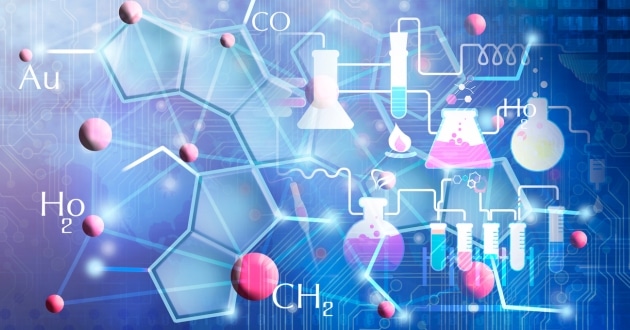In today’s rapidly evolving world, science and technology play pivotal roles in shaping our everyday lives. These two fields are deeply intertwined, driving innovation and progress across various sectors. From the devices we use daily to groundbreaking research that promises to change the future, the impact of science is undeniable. This article delves into the relationship between science and technology, their individual contributions, and their collective influence on modern society.
Science is the systematic study of the natural world through observation, experimentation, and analysis. It seeks to understand the underlying principles governing the universe, from the smallest particles to the vastness of space. The scientific method, a rigorous process of hypothesis testing and validation, ensures that scientific knowledge is reliable and continually updated.
The Importance of Scientific Research

Scientific research is fundamental to advancing our understanding of the world. It provides the foundation for new discoveries and innovations, enabling us to solve complex problems and improve quality of life. Research in science leads to the development of new technologies, medical advancements, and environmental solutions, underscoring its critical role in progress.
Understanding Technology
Defining Technology
Technology is the application of scientific knowledge for practical purposes. It involves the creation of tools, systems, and processes that solve problems and enhance human capabilities. Technology is constantly evolving, driven by scientific discoveries and the need to address new challenges.
The Symbiotic Relationship Between Science and Technology
How Science Drives Technological Advancements
Scientific discoveries often lead to technological innovations. For example, understanding the properties of materials has led to the development of stronger and lighter materials used in construction and manufacturing. Similarly, advances in biology and chemistry have paved the way for new pharmaceuticals and medical treatments. The relationship between science and technology is cyclical: scientific research informs technological development, which in turn provides new tools for scientific exploration.
How Technology Enhances Scientific Research
Conversely, technology enhances scientific research by providing sophisticated tools and techniques. Advanced microscopes, imaging technologies, and computational models enable scientists to observe phenomena at unprecedented scales and resolutions. Technology also facilitates data collection, analysis, and sharing, making scientific research more efficient and collaborative.
Key Innovations in Science and Technology
Breakthroughs in Medicine
Recent advancements in science and technology have revolutionized medicine. Innovations such as CRISPR gene editing, personalized medicine, and telemedicine are transforming healthcare. These technologies enable more precise treatments, reduce the risk of errors, and expand access to medical services.
Environmental Technologies
Addressing environmental challenges is another area where science and technology intersect. Renewable energy technologies, such as solar and wind power, are reducing our reliance on fossil fuels. Additionally, advances in waste management and pollution control technologies are helping to mitigate environmental damage and promote sustainability.
The Digital Revolution
The digital revolution, driven by advances in information technology, has reshaped nearly every aspect of our lives. From smartphones and the internet to artificial intelligence and machine learning, these technologies are changing how we communicate, work, and entertain ourselves. The integration of digital technologies into various industries is also driving economic growth and innovation.
The Future of Science and Technology
Emerging Trends
The future of science is poised to bring even more transformative changes. Emerging trends include:
- Quantum Computing: Promising unprecedented processing power and solving complex problems beyond the capabilities of classical computers.
- Nanotechnology: Enabling the creation of materials and devices at the molecular scale with applications in medicine, electronics, and energy.
- Artificial Intelligence (AI): Revolutionizing industries through automation, data analysis, and decision-making processes.
Ethical Considerations
As science and technology advance, ethical considerations become increasingly important. Issues such as data privacy, genetic modification, and the impact of automation on employment need to be addressed. Ensuring that technological advancements are aligned with societal values and ethical standards is crucial for sustainable progress.
The Role of Science and Technology in Education
Science have revolutionized education, making learning more interactive and accessible. Digital classrooms, online resources, and educational software enhance teaching methods and provide students with valuable tools for their studies. Technologies like virtual reality and augmented reality offer immersive learning experiences, helping students understand complex concepts more easily.
Innovations in Science and Technology in Healthcare
The healthcare industry has greatly benefited from advancements in technology. Innovations such as telemedicine, robotic surgery, and advanced imaging techniques have improved patient care and treatment outcomes. Moreover, wearable health devices and mobile health applications enable continuous monitoring and early detection of health issues.
Interactive Learning with PhET Simulations in Science and Technology Education
Incorporating interactive tools like PhET simulations into science and technology education can significantly enhance student engagement and understanding. PhET Interactive Simulations, developed by the University of Colorado Boulder, offer free, high-quality, and interactive simulations for teaching and learning science and mathematics. These simulations allow students to experiment with scientific concepts in a virtual environment, making abstract ideas more tangible and accessible.
The Impact of Science and Technology on Communication
The evolution of technology has transformed communication. From the invention of the telephone to the development of the internet, these advancements have made it easier for people to connect globally. Social media platforms, instant messaging, and video conferencing technologies have further revolutionized how we interact personally and professionally.
Science and Technology in Environmental Conservation
Science play a crucial role in environmental conservation. Renewable energy technologies, such as wind, solar, and hydroelectric power, help reduce carbon emissions and combat climate change. Additionally, advancements in recycling and waste management technologies promote sustainable practices and protect natural resources.
Enhancing Education Management with a Student Information System
A student information system is an essential tool for modern educational institutions, streamlining the management of student data and administrative processes. This comprehensive system allows schools to efficiently handle tasks such as enrollment, attendance tracking, grade management, and communication between educators, students, and parents.
Conclusion
In conclusion, science and technology are inextricably linked, driving innovation progress across all facets of life. While science provides the knowledge and understanding of the natural world, technology applies this knowledge to create practical solutions. Together, they have the power to address some of the most pressing challenges facing humanity and improve the quality of life for people around the globe. As we look to the future, continued investment in scientific research and technological development will be essential for sustaining this momentum and achieving a better, more sustainable world.


